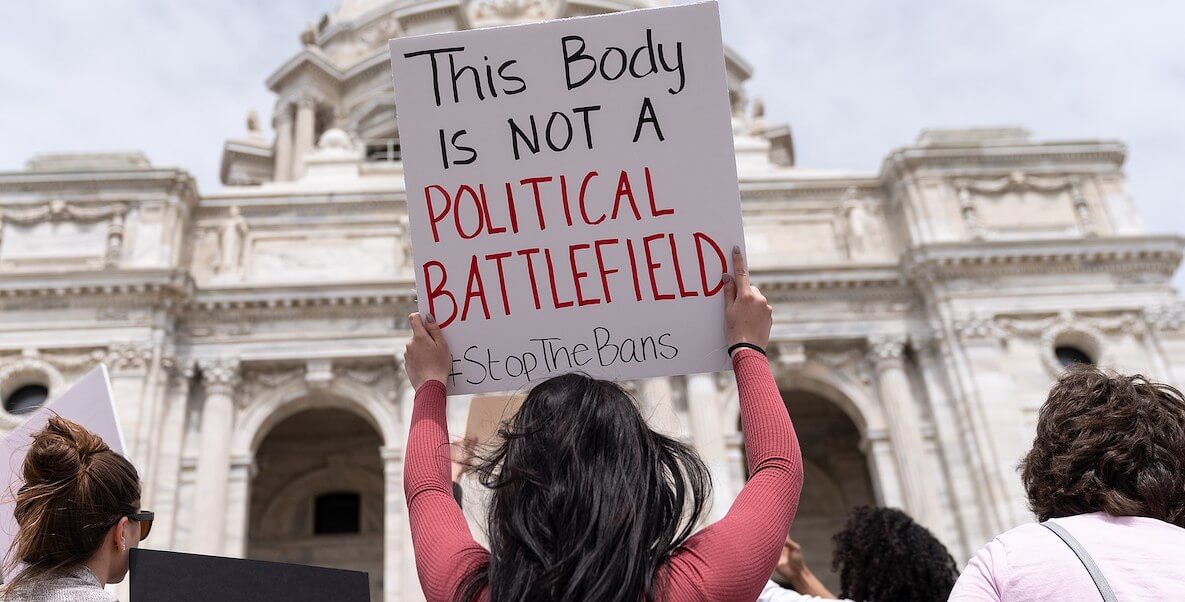Growing up in a conservative household and attending a Catholic, all-girls school in Montgomery County, PA, I vividly remember being taught that abortion was murder — always wrong, always immoral. That black-and-white messaging shaped my early beliefs and left no room for complexity or compassion.
It’s only later, as a reproductive psychologist providing mental health care during pregnancy and beyond that I came to understand the full picture: reproductive healthcare is not just about elective abortion — it’s about access to the full range of medical care, and the right to make decisions in moments of profound vulnerability.
I’ve counseled hundreds of women facing agonizing decisions regarding their reproductive lives and listening to them makes you understand why the full scope of care is needed.
Sara, one of my patients, learned at her 20-week ultrasound that her baby had a fatal condition and would not survive outside the womb. Her choices were devastating: End the pregnancy, or carry it to term knowing she’d lose her child.
Another patient, Jenna, was 14 weeks pregnant with twins when she began bleeding and cramping. In a state with restrictive abortion laws, Jenna might have been denied the care that ultimately saved her life.
Amy was in treatment for depression and trying to survive an abusive relationship with her husband when she found out she was pregnant with their third baby. In the postpartum period of her last two pregnancies, she fell into a depression so deep she contemplated suicide.
This paradox reveals a quiet but powerful truth: Americans, regardless of political affiliation, overwhelmingly believe in the freedom to make personal healthcare decisions without government interference.
Each of these women received some aspect of abortion care, and their stories share a common theme: In moments of profound helplessness, they were empowered to make choices that were right for them in their unique circumstances. These women — our mothers, daughters, sisters, wives and friends — are not making careless choices; they are confronting decisions that no one should face without compassion.
The debate over reproductive healthcare is often framed in extremes, leaving many people — women included — confused about what reproductive rights truly encompass.
Beyond abortion
Many don’t realize how intertwined abortion care is with everyday care. If you’ve ever had a miscarriage that required a dilation and curettage (D&C) procedure, you’ve directly benefited from access to abortion care. If you or someone you know has been treated for an ectopic pregnancy, where the fertilized egg implants outside of the uterus, they have directly benefited from access to abortion care.
These accounts underscore a critical truth: Abortion bans do not just restrict elective procedures; they also deny women access to life-saving care. It’s a matter of life and death.
In the recent election, voters across the country sent a surprising message, one that transcended party lines. While many cast ballots for candidates who openly oppose abortion care, they also voted in favor of protecting reproductive rights in their states.
In blue states like Colorado, New York and Maryland, initiatives to enshrine abortion rights passed decisively, further cementing these states as havens for reproductive freedom. But the real surprise came from conservative states. Arizona, Missouri, Montana and Nevada — states that leaned heavily toward President-elect Trump — voted to expand or protect abortion access through constitutional amendments and protections. In Florida, a stunning 57 percent of voters backed overturning the state’s strict six-week abortion ban, barely missing the 60 percent threshold needed to pass.
This paradox reveals a quiet but powerful truth: Americans, regardless of political affiliation, overwhelmingly believe in the freedom to make personal healthcare decisions without government interference.
The complexities of care
Yet this shared belief is obscured by a toxic mix of political polarization and misinformation. Conservative rhetoric distorts and simplifies the issue, painting abortion as the reckless choice of young, low-income women. On the other hand, progressive messaging often fails to highlight the nuanced realities of reproductive care in ways that resonate with voters.
Politicians often fail to grasp the complexities of care, as demonstrated by Idaho Rep. Vito Barbieri, who suggested a woman swallow a camera for a gynecological exam — revealing a profound misunderstanding of anatomy.
Reproductive healthcare is too important to be reduced to political talking points or shaped by ignorance.
Yet these same uninformed lawmakers are attempting to decide which medical treatments should be permitted for women. This is unacceptable. Reproductive healthcare is too important to be reduced to political talking points or shaped by ignorance.
If we can cut through the political noise and bridge the gap between rhetoric and reality, maybe we’d find we’re not as divided as we think. More Americans could see the complex reality if we can educate voters on the real-world stakes of reproductive healthcare. Even in deeply conservative states, voters are signaling a shared belief in protecting reproductive rights. That gives me hope.
The fight for reproductive rights isn’t a distant debate — it’s unfolding now, in exam rooms, hospital hallways, and kitchen tables across the country. When women lose the right to choose, they don’t just lose autonomy: They lose safety, dignity, and far too often, their lives.
Every law, every restriction, every delay costs women and their families. Women — like men — deserve to be treated with the full arsenal of care, not some twisted regimen devised by politicians. That’s why the fight for reproductive rights is one we cannot afford to lose.
Alexis Zollo, Ph.D., is an Associate Fellow at the Leonard Davis Institute of Health Economics, a postdoctoral researcher at the Perelman School of Medicine at the University of Pennsylvania, and a reproductive psychologist.
The Citizen welcomes guest commentary from community members who represent that it is their own work and their own opinion based on true facts that they know firsthand.
![]() MORE ABORTION COVERAGE FROM THE CITIZEN
MORE ABORTION COVERAGE FROM THE CITIZEN



